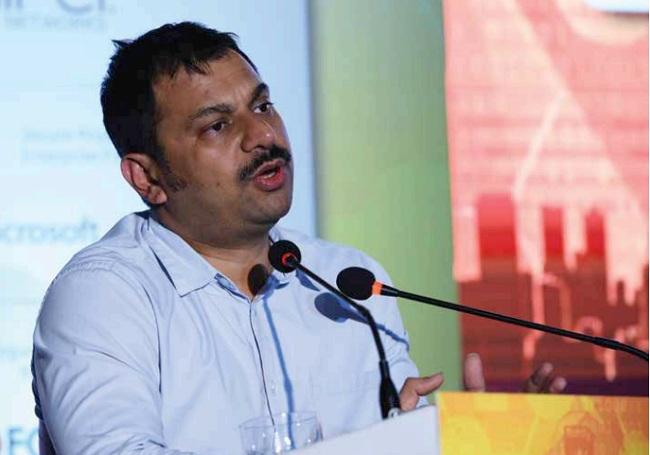
In the last few years, the cyber security landscape has undergone a huge transformation. Cyber criminals and hackers spare no one, and do not discriminate between enterprises and governments. Therefore, to share this intelligence and help each other becomes extremely critical. The session by Brijesh Singh, IG of Police (Cyber & PAW), Government of Maharashtra, at the ninth edition of CSO Forum Summit, promised to address just that.
"The government cannot be seen as the other, technologically less sophisticated anymore," said Brijesh Singh, IG of Police (Cyber & PAW), Government of Maharashtra. He said that the government is investing a lot of time, money and technology in cybersecurity projects. "In one of the projects that I manage, the investment is around 1000 crores, and in the next two years, you will see significant amount of investment by the government," said Singh.
As far as security is concerned, the government plays three major roles of a regulator, an investigator and a partner. However, it is the role of the partner that the government and the industry need to focus on. "If the domain knowledge is with you, the threat intelligence with us, and this presents a huge opportunity for the government that is developing the infrastructure to learn about the risks and solutions from the industry," said Singh.
For the government to be seen as the other, or technologically less sophisticated, by the IT industry is wrong.
In India, a total of 50,362 cyber security incidents were observed during the year 2016 as compared to 49,455 in 2015. But in 2017, only 2000 cyber security incidents had been reported.
“The enterprises must shed its inhibition of approaching the government every time a breach or an event occurs,” said Singh.
Today, the Police cyber cell addresses all kinds of threats.
Whether it is human trafficking, counter terrorism or narcotics, none of these departments have been outsourced and the Police is equipped to address any untoward event that may take place,” said Singh. “The government understands the sensitivity around cybersecurity and is in a position to collaboratively work with the industry in this regard,” he added.
If DRDO and ISRO can function well, other arms can too.
When it comes to cybersecurity, Singh stressed on the need for the government to focus on innovation.
There’s no dearth of talent in India. “We know that we have developed tools and technologies to address cybersecurity but these solutions also need to be ‘productised’ quickly,”said Singh. Singh also stressed on the need to build an innovative ecosystem where the government and industry can collaborate. “The government encourages and emphasises the importance of working with non-government bodies from academia, industry and independent researchers to address cybercrime,” he added.
Singh highlighted the fact that the government cannot unilaterally build and spend on technology. Quoting the smart city example, Singh said that when it comes to Internet of Things (IoT), the threat spectrum has become so large and the vulnerabilities so high, with no enterprise-kind of solution, it will be very difficult for the government to manage cyber security for smart cities.
“We will require indigenous solutions – and not black boxes—to put on our systems to make our response effective and impactful to cyber crimes,” said Singh.
Finally, the focus of this collaborative force – of both the government and the industry – should be to develop the tools and capabilities to sustain its cyber security measures, which include a strong focus to defend, prevent, innovate and secure India’s digital economy.

 In
In
Comments
Pak Generic https:/
Pak Generic https://abuycialisb.com/ - Buy Cialis Amoxicillin Dosage For Urethritis <a href=https://abuycialisb.com/#>Buy Cialis</a> buy accutane for acne
Add new comment